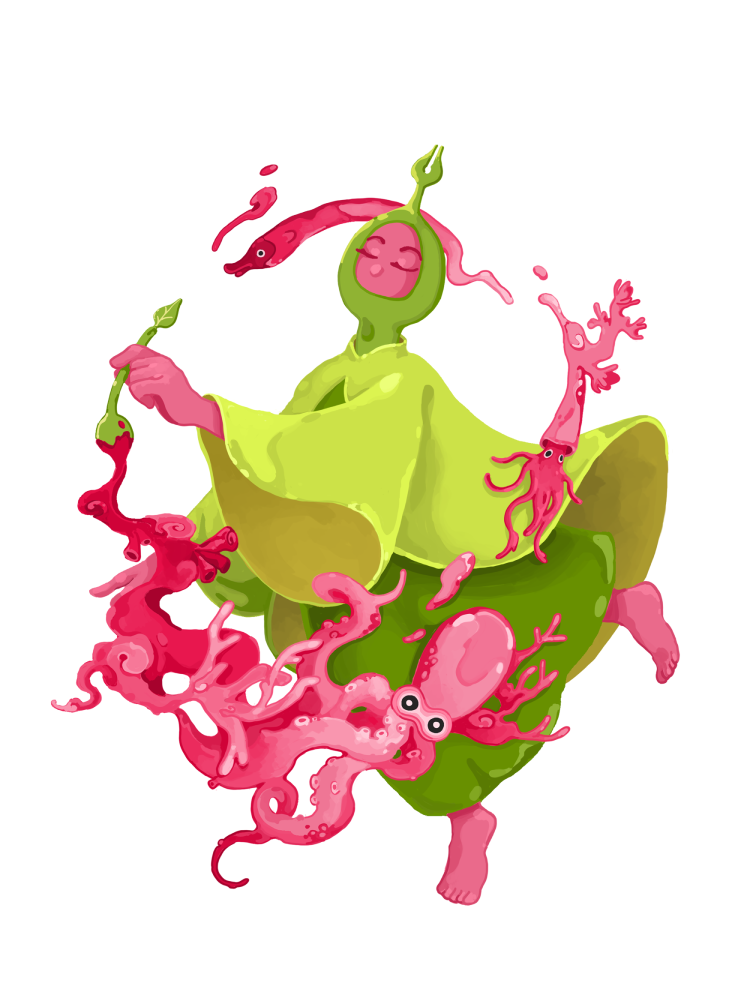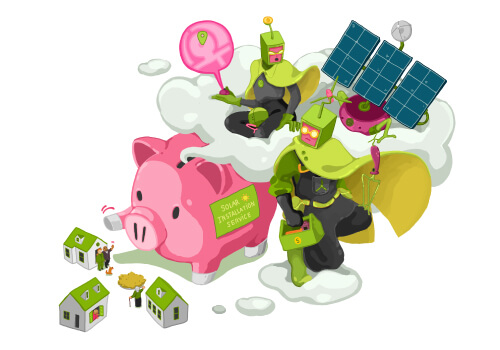
Cultural Superpowers are those that help you understand and know the world, and how you act within it. Cultural Superpowers are related to our cultural heritage, and include our ethnicity, habits, language, stories, traditions, spirituality, symbols, customs, identities, norms, values, and many different forms of art.
Young people’s Cultural Superpowers often involve:
- Cultural values and practices that help protect the environment (e.g. caring for Country).
- Artistic expression through drawing, painting, graffiti, photography, video, music, dance, etc.
- Values related to social justice and climate justice (e.g., listening to people who are the most affected climate change).
- Traditions that help take care of the environment (celebrations that help us become aware of the importance of nature, traditional land management practices).
- Spiritual beliefs that teach us to take care of nature.
Actions
Climate change is a complicated problem. To tackle it, we need all sorts of people working on all sorts of actions, big and small.
By taking on one (or more!) of these climate actions, you can use your Climate Superpowers as an agent of change at home, your community and beyond. Each action will also help your superpowers grow even stronger!
So, how do want to use your superpowers today?
In these pages, you’ll find ideas, tips, and resources to help you with your chosen actions. We’ll suggest special actions that we think you’d ace, based on your superpowers.
When you complete an action, you can return here and share notes with other young people who are about to take on a similar action in their own lives. Let’s dive in!
Start by choosing which type of action you’d like to explore first:
Experience how your cultural heritage, habits, language, stories, traditions, spirituality, customs, identities, values, and art can teach you about climate change and climate action.
Find artists you like that explore climate change in their work. Their art might involve drawing, painting, graffiti, photography, video, music, dance.
Learn about how Aboriginal and Torres Strait Islander young people are caring for Country.
Watch a movie or documentary about nature or climate change.
Cultural Superpowers are a core aspect of how we see and act in the world. Your Cultural Superpowers are the values, wisdom and practices that your culture, spirituality and creativity give you to make positive changes in your everyday life. These tools also help you connect to your community and build resilience in the face of climate change.
Make a work of art (drawing, painting, writing, dancing, videos, etc.) that talks about climate action, and share it with your family, friends, at school or over social media.
Cook a delicious and sustainable recipe for your family or friends.
Check out this delicious list of recipes for sustainable snacks by WWC UK and tips on how to eat more sustainably.
Create a banner or a sign for the next time you go to the Strikes 4 Climate.
Invent creative ways to celebrate special occasions and traditions in a sustainable way. For example, you could make homemade gifts and party decorations.
Your cultural heritage, habits, language, stories, traditions, spirituality, customs, identities, values, and art can are powerful tools that can help you navigate the difficult feelings and experiences caused by climate change. Having a sense of purpose and connecting to something larger than yourself can also help you feel more balanced and empowered.
Cultivate your spiritual side: participate in ceremony, meditate, pray, practice yoga, contemplate nature…
Express yourself with art. Drawing, painting, dancing, video, origami, knitting, embroidering, sewing, carpentry – the list is endless.
Cook a nice treat for yourself or share a comforting meal or a coffee with friends.
Listen to music. Dance and sing like no one’s watching.
In Australia, our diverse cultural heritage provides us important lessons and wisdom that we need to save the planet. Cultural Superpowers also help us transform society’s values and practices. The following ideas may resonate with you, and you can also reach out to your community for opportunities to express and live your culture while you engage in climate action.
Join or form an art group to create an installation, exhibition, play, podcast etc., that helps raise awareness about climate change.
Support Aboriginal and Torres Strait Islander organisations like Seed Mob, Australia’s first Indigenous youth climate network, and other Indigenous peoples around the world.
Some people arrive in Australia as migrants or refugees because of climate change. Support them and the organisations that help them in a way that is respectful of their values and traditions.
More and more people around the world are being displaced by disasters caused by climate change and arrive in Australia as migrants or refugees. You can learn and share information about how children and young people around the world are being forced to leave their homes because of the impacts of climate change in this article by UNICEF
You can also learn about how to support refugees and asylum seekers in Australia with these tips from Save the Children and Red Cross
Not everyone is equally affected by climate change. Help raise awareness of how some people are more affected because of their gender, ethnicity, culture, nationality, socioeconomic status or for having a disability.



